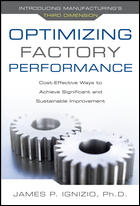Manufacturers across a range of industries lean on statistical process control (SPC) operations management methods to handle various customers and compliance requirements while keeping yield and quality high.
As consumer demands change and globalization reshape manufacturing, organizations face tighter tolerances and more demanding quality and business challenges. Turnarounds are tight, prices are competitive, compliance requirements shift based on the landscape, and customer standards are high.
Many manufacturers are turning to real-time SPC data collection software to gain visibility—across individual and remote plants.
This helps them be proactive in reducing costs, boosting speed and yield, driving quality and averting defects through continuous improvements. It also helps businesses guarantee part and product traceability.
As a result, many manufacturers benefit from enterprise-wide operations management solutions. They often require software that is based on real-world manufacturing scenarios in short-run or high-mix/low-volume production environments where SPC can be particularly complex.
Manufacturers benefit from software that offers flexibility, helping them to manage quality in multifaceted environments. With these tools, they can collect data on the shop floor in real-time, so quality managers can successfully take, combine, and compare data and discover where they have the greatest prospects for improvement.
The right software also offers quality dashboards. These tools give manufacturers visibility of their operations so they can detect problems (such as defects) early and prevent them. Such early deterrence diminishes scrap, rework, and recalls. It ultimately saves money.
Such tools also help businesses to minimize their recall risk, by noticeably reducing process variation. They also lower recall costs by permitting raw material lot code tracking.
These benefits can help manufacturers of all stripes achieve higher and higher levels of ROI over time.







